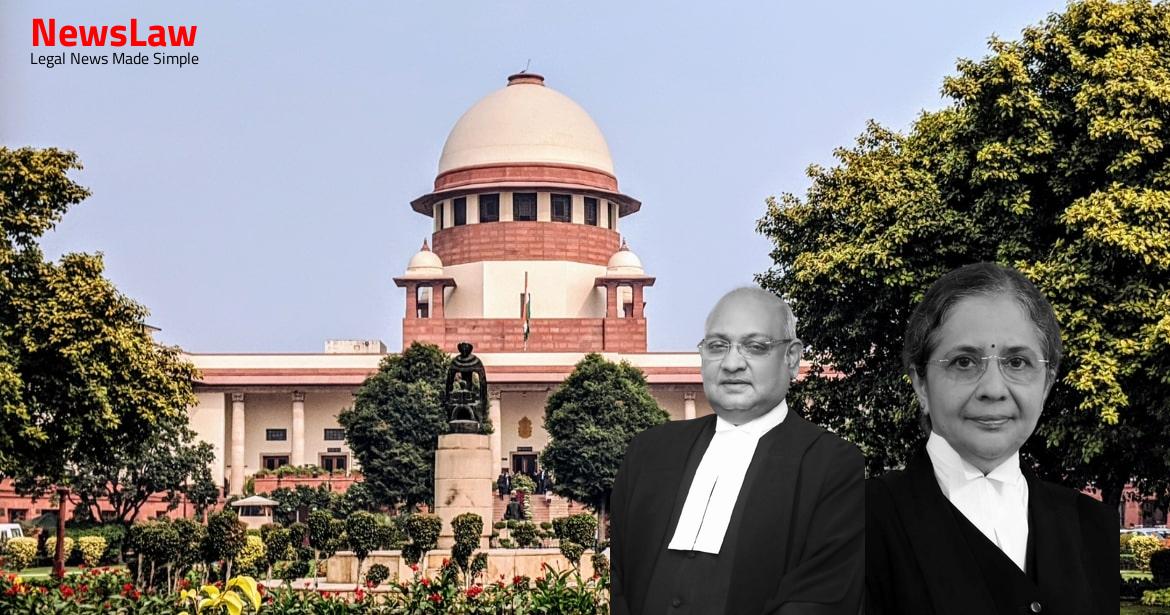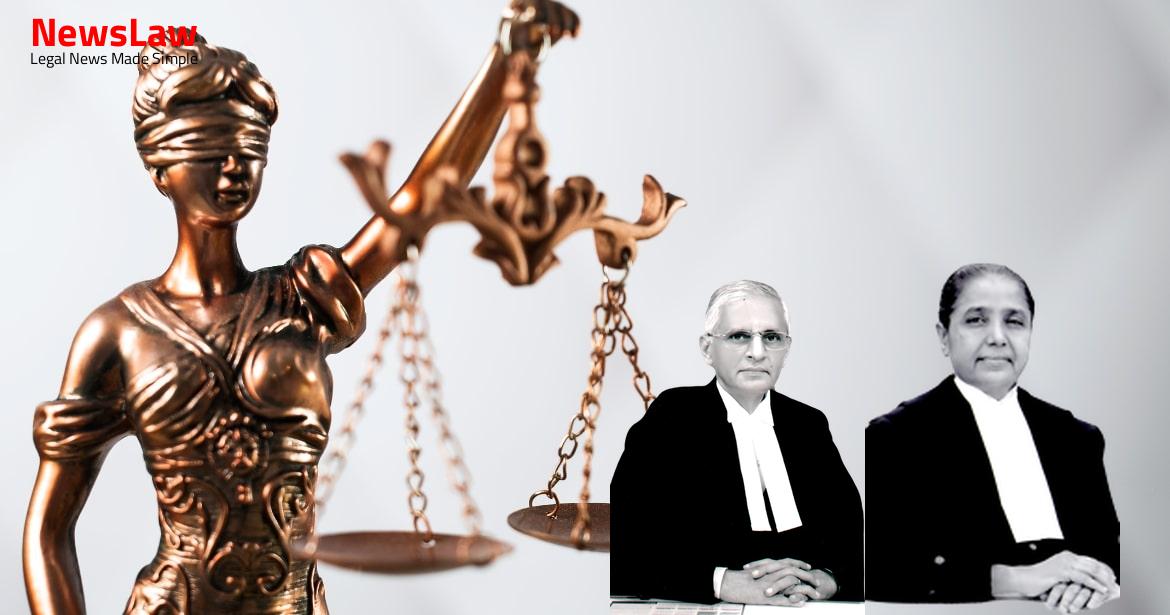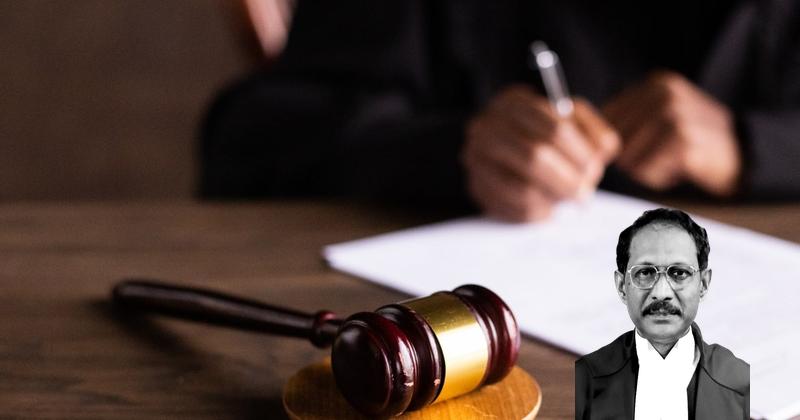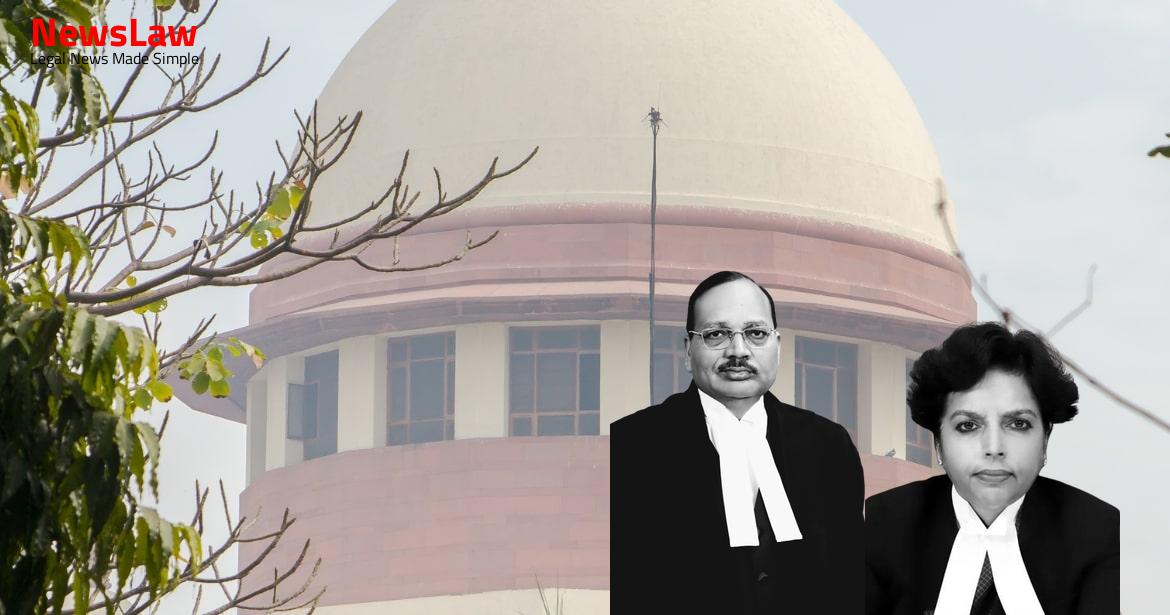Explore the intricacies of legal analysis undertaken by the court regarding intent and offence classification in a recent criminal case. The court’s evaluation of the evidence and arguments led to a decision on whether the offense should fall under Section 302 or Section 304(II) of the IPC, highlighting key considerations in criminal law. Stay tuned to unravel the complexities of the legal judgment.
Facts
- Accused no. 2 has filed the instant appeal challenging the conviction under Section 302.
- The deceased and accused were neighbours in Elavathadi village.
- A quarrel occurred between accused no. 1 and the deceased’s wife and son over a missing goat.
- Accused no. 1 assaulted the deceased’s son Shanmugaperumal using an iron rod and biting him on the cheek.
- On 14.03.2006, all three accused armed with an iron pipe and wooden log came to the deceased’s house to assault him.
- Accused no. 2, Krishnamurthy, assaulted Samidurai on the head with a wooden log and pushed him down.
- Accused no. 1, Govindaraj, assaulted Samidurai with an iron pipe on the chest while he was on the ground.
- The third accused, Selvaraj, also assaulted Samidurai on the right side of his chest with a wooden log.
- Accused nos. 1, 2, and 3 were initially charged and tried in the Sessions Court.
- Accused no. 1 – Govindaraj convicted for various offences, accused no. 2 – Krishnamurthy convicted for the offence under Section 302 of IPC, accused no. 3 – Selvaraj convicted for the offence under Section 302 r/w Section 34 of IPC.
- High Court modified the judgement for accused no. 3, convicting him under Section 323 of IPC alone and sentencing him to one year of simple imprisonment.
- Accused nos. 1 and 3 were acquitted for the offence under Section 302 r/w Section 34 of IPC.
- The High Court’s judgement and orders have not been challenged by the accused or the State.
- The present appellant, Krishnamurthy, filed an appeal against the judgment of conviction and sentence imposed by the Sessions Court.
- High Court dismissed the appeal of the present appellant and confirmed the conviction and sentence passed by the Sessions Court.
- Accused no. 1’s conviction was modified by the High Court, sentencing him for offences under Sections 324 and 294(b) of IPC.
Also Read: Ensuring Maintenance Rights: Court’s Legal Analysis
Arguments
- The appellant’s advocate argued that the act of the appellant was not done intentionally to cause the death of the deceased, as observed by the High Court.
- The injuries suffered by the deceased were highlighted, indicating the lack of intention on the part of the appellant to commit murder.
- The appellant’s advocate suggested that the appellant’s actions may fall under Part II of Section 304 rather than Section 302 of IPC, considering the lack of intention to cause death.
- The other two accused were not convicted for the offence under Section 302 r/w Section 34 of IPC, which the appellant’s advocate used to support his argument.
- The respondent-State’s advocate, however, supported the findings of the two lower courts and urged the Court not to interfere with the conviction under Section 302.
Also Read: Analyzing Evidentiary Value in Criminal Conviction Case
Analysis
- The post-mortem report and evidence suggest the deceased had head injuries.
- The deceased was unconscious when brought to the hospital.
- Appellant no. 2 did not dispute the occurrence of the incident.
- Dr. Ezhil recorded the history of assault on the deceased by three known persons.
- Argument raised for convicting the appellant for Section 304 (II) instead of Section 302 of IPC.
- Witnesses testified that appellant-accused no. 2 attacked the deceased with a wooden log on his head.
- The injuries recorded on the deceased included fracture of ribs and subdural hematoma with hemorrhage on the left frontal intra cerebral region.
- The cause of death was determined to be shock and hemorrhage due to head injuries and subdural hematoma.
- The injuries were deemed possible with the use of weapons like a wooden log.
- The High Court did not convict accused nos. 1 and 3 for the offense under Section 302 of IPC, while the present appellant was convicted under the same.
- The court did not dwell into the findings regarding accused nos. 1 and 3 as the State did not appeal against them.
- Accused no. 2 was convicted under Section 302 despite the act not being intentional to cause death, suggesting a Section 304(II) classification may be more appropriate.
Also Read: Legal Authority and Res Judicata in Representation Matter
Decision
- The appellant’s conviction is altered to the offence punishable under Section 304 Part II IPC.
- The appellant is sentenced to 10 years of imprisonment and a fine of Rs. 10,000/-.
- The appellant has already served a longer term of imprisonment.
- The appellant may be released immediately.
- The appeal is allowed and disposed of accordingly.
Case Title: KRISHNAMURTHY Vs. STATE REP. BY INSPECTOR OF POLICE (2022 INSC 897)
Case Number: Crl.A. No.-000063-000063 / 2011



